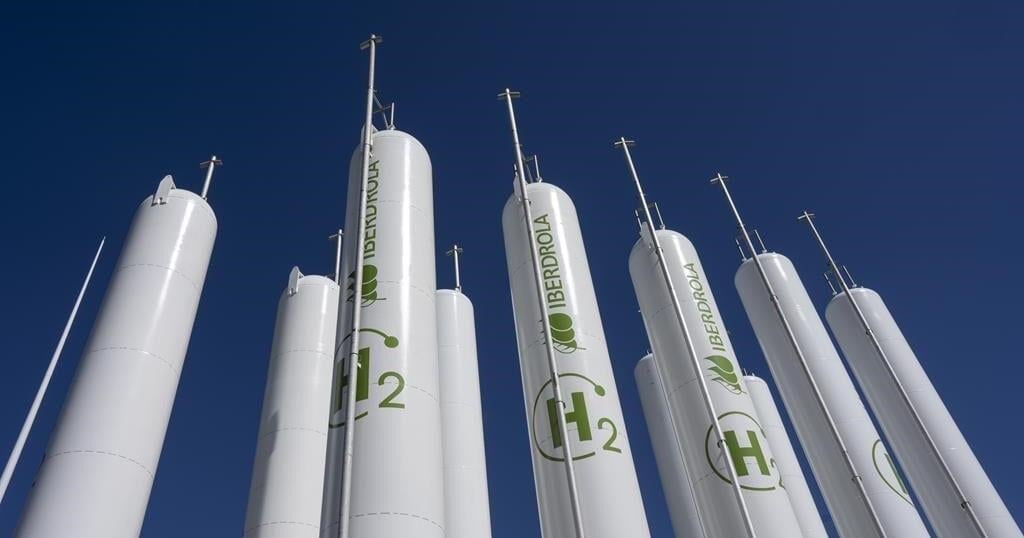RIO DE JANEIRO – Justin Trudeau left the G20 summit in Brazil Tuesday saying Canada and other “advanced economies” wanted to see a stronger statement calling out Russia’s invasion of Ukraine.
The invasion was a key theme for the prime minister as he met numerous world leaders ahead of Donald Trump’s return to the White House.
Russia is a member of the G20 but President Vladimir Putin has not attended a leaders’ summit since before Russia launched a full-scale invasion of Ukraine in February 2022.
That year, the G20 leaders’ final statement condemned Russia’s actions and demanded it withdraw from Ukraine.
A year later, the summit ended with watered-down language about the war. The final statement from Brazil on Tuesday was even shorter and did not mention Russia at all.
“I would have wanted to say things a lot stronger than in that communique,” Trudeau said at a news conference as the summit concluded.
But he said the G20 is “a collection of a whole bunch of different perspectives from around the world” and Brazilian President Luiz Inácio Lula da Silva had to find a way to get consensus.
Trudeau also expressed concern about the impact Trump will have on global support for Ukraine. Trump and his allies have criticized the financial support from the U.S. for Ukraine and there are concerns the Republicans, who will soon have full control of the White House and Congress, will drastically scale back American backing for Ukraine.
Some of Trump’s allies blasted outgoing President Joe Biden this week for authorizing Ukraine to use long-range missiles supplied by the U.S. to strike deep inside Russia.
Donald Trump Jr. and Utah Sen. Mike Lee were among those who accused Biden of trying to start “world war three.”
Trudeau and Biden discussed Ukraine in a 30-minute bilateral meeting in Brazil on Monday and Trudeau said Canada stands behind Biden’s decision.
“I have, for months now, talked about how important it is to degrade the capacity of the Russian military to strike into Ukraine with impunity because Ukraine hasn’t been able to strike on factories and military production sites in Russia,” Trudeau said in a press conference in Rio de Janeiro Tuesday.
Trudeau said the summit came “at a particularly challenging time in the world, for geopolitics but also for citizens all around the world,” due to inflation, war and climate change.
Canada has had some difficulty in diplomatic relationships with key G20 members in recent years, including China and Russia. Trudeau had a brief interaction with President Xi Jinping, which followed two different meetings between the Canadian and Chinese foreign ministers in recent months. Trudeau said the two discussed the importance of those discussions.
But he skirted around whether he had any interactions with Indian Prime Minister Narendra Modi. Canada’s relationship with India has been deeply scarred over the last year as Canada has accused agents of Modi’s government of being behind a campaign of violence, including murder, targeting mostly Sikh Canadians on Canadian soil.
In October Canada expelled six Indian diplomats who were called persons of interest in those criminal cases, after India refused to waive their diplomatic immunity in order to be questioned. India expelled six Canadian diplomats in return.
On Tuesday Biden seemed to try and play a bit of peacemaker between Trudeau and Modi.
During a photo of all the leaders at the summit, Biden stood in the front row between Trudeau and Modi and briefly attempted to bring the two together to chat. Trudeau and Modi both appeared to smile at each other and say a few words before resuming their positions on the riser facing forward.
Trump won’t become the president again until January but he still loomed large over the G20 amid concerns about his promises to pull back on U.S. policies on climate change and to introduce an across-the-board import tariff on all countries including Canada.
Canada is set to host the G7 leaders’ summit next June in Alberta, which will likely be the first large multilateral event for the U.S. following Trump’s second inauguration.
Last time Canada hosted the G7 leaders’ summit in 2018, Trump infamously stormed out after tense exchanges over the steel and aluminum tariffs he imposed on Canada. He called Trudeau “dishonest and weak.”
The prime minister said his government is “not going to panic” about next year’s summit in Alberta.
“The challenge of working with an American president that doesn’t always put multilateralism and summitry at a high priority is going to be real, but we navigated it successfully,” he said.
Trudeau said that if the looming Trump administration cracks down on green technologies, it could represent an economic opportunity for Canada.
“I’m worried about the U.S. stepping back on the fight against climate change,” he said.
“If people look at the United States as not a place where it’s interesting to innovate and fight climate change, people will automatically turn to Canada.”
John Kirton, head of the G20 Research Group, said the summit produced a relatively weak closing statement, with 174 commitments instead of the roughly 240 from each of the last two G20 summits.
“That’s a significant drop,” he said, noting that many of the pledges were recommitments, and the summit came up with no new financial pledges.
However, Trudeau announced Tuesday $68 million in allocations of previously announced funds to help with G20 priorities mostly in Latin America, ranging from cracking down on organized crime and drug smuggling, to supporting conservation and increasing women’s economic participation.
Kirton said despite Trudeau’s concerns, the language on Ukraine could have been much weaker such as by calling for a ceasefire, as some G20 members have called for.
Kirton added that Trudeau would likely appreciate the declaration’s language on migration, to respect the rights of all who leave their country while tackling the causes of illicit migration. Kirton said that’s in sharp contrast to Trump’s proposed policies.
This report by The Canadian Press was first published Nov. 19, 2024.
